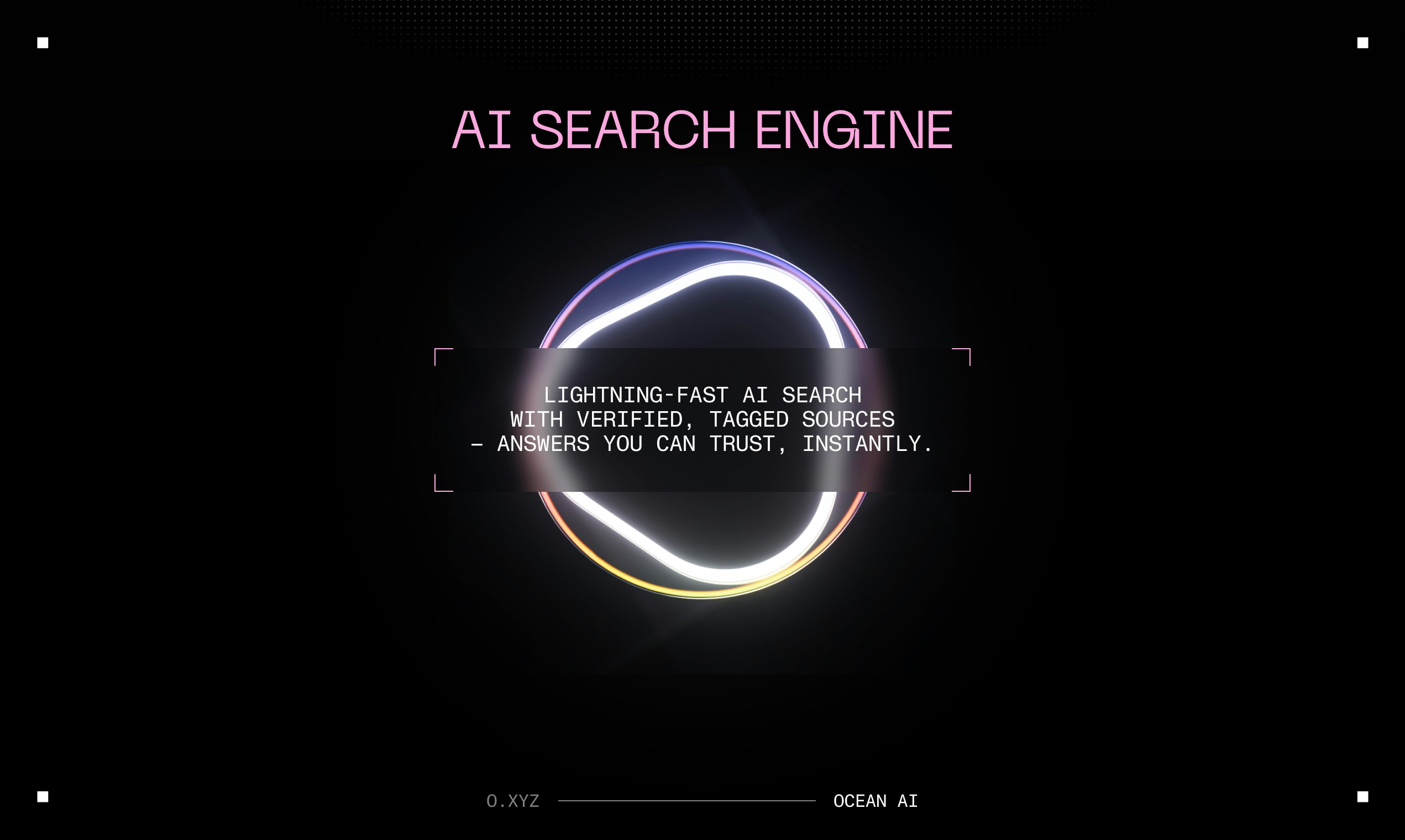
Table of Contents
Overview
Tired of slow, centralized AI search engines that track your every move? Enter Ocean, a revolutionary decentralized AI-powered search assistant built for speed, sovereignty, and resistance to censorship. Ocean aims to democratize access to high-performance AI search capabilities, surpassing traditional search engines with its lightning-fast performance and privacy-preserving infrastructure. Let’s dive into what makes Ocean a game-changer in the world of AI search.
Key Features
Ocean boasts a compelling set of features designed to prioritize user privacy and speed:
- Decentralized infrastructure: Operates on a distributed network, eliminating reliance on central servers and single points of failure.
- AI-powered search: Leverages advanced AI algorithms to deliver relevant and accurate search results.
- Censorship-resistant: Designed to bypass censorship attempts, ensuring access to information regardless of location or political climate.
- Borderless and sovereign access: Provides unrestricted access to information without geographical limitations.
- Ultra-fast response times: Delivers search results with remarkable speed, offering a seamless and efficient user experience.
- User-controlled data: Empowers users with complete control over their data and search history.
How It Works
Ocean’s architecture is what truly sets it apart. It operates on a distributed network, processing search queries using local AI nodes. These nodes interpret user inputs, fetch results rapidly, and return them without relying on centralized servers. This decentralized approach not only enhances speed but also ensures that the model respects user privacy and resists location-based restrictions. In essence, Ocean provides a secure and private way to access the vast knowledge of the internet.
Use Cases
Ocean’s unique features make it suitable for a variety of applications:
- Private AI search for individuals: Ideal for users who prioritize privacy and want to avoid being tracked by traditional search engines.
- Research assistance in restrictive environments: Enables researchers and journalists to access information in areas where censorship is prevalent.
- Anonymous knowledge discovery: Allows users to explore topics and gather information without revealing their identity.
- Developers integrating fast search into dApps: Provides developers with a powerful tool for adding fast and private search functionality to their decentralized applications.
Pros & Cons
Like any emerging technology, Ocean has its strengths and weaknesses. Let’s take a look at the advantages and disadvantages.
Advantages
- Fastest AI search experience currently available.
- Privacy-preserving and decentralized architecture.
- Resistant to censorship, ensuring access to information.
Disadvantages
- Limited public documentation currently available.
- Currently in early-stage development, which may result in occasional bugs or instability.
How Does It Compare?
When considering alternatives, it’s important to understand how Ocean stacks up against the competition. Compared to Andi, Ocean emphasizes decentralization and speed, offering a more privacy-focused experience. In contrast to Perplexity AI, Ocean provides more sovereignty and censorship-resistance, giving users greater control over their data and access to information.
Final Thoughts
Ocean represents a significant step forward in the evolution of AI search. Its decentralized architecture, focus on privacy, and lightning-fast performance make it a compelling alternative to traditional search engines. While it’s still in early-stage development, Ocean has the potential to revolutionize the way we access and interact with information online. Keep an eye on this promising project as it continues to evolve and mature.


